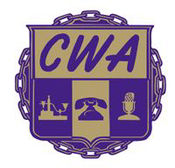
'If you give us exactly what we want, we might wire your town with fiber optics. If not, there is always Wisconsin.'
The Trojan Horse of the 2000’s apparently comes in the form of spools of fiber optic cable. Verizon assumes the attractive notion of FiOS, fiber to the home for broadband, telephone, and video programming, is worth sacrificing local oversight. The company has made it known it does not enjoy what they consider a cumbersome franchising application procedure in Massachusetts. In a public relations push, Verizon has suggested that giving them quicker approval will guarantee state residents the golden promise of fiber optics. If the company doesn’t get what it wants, maybe Wisconsin or another state where Verizon is deploying FiOS will:
Ellen M. Cummings, a spokeswoman for Verizon, said that with the struggling economy, the company has to choose where to commit its financial resources. Therefore, it is looking for the quickest return on its investment.
“Here in Massachusetts, it puts us in a predicament. If the company is trying to decide how to deploy money, and Massachusetts is vying against other states, like Wisconsin, where the wait is as little as five days, it definitely puts Massachusetts at a disadvantage,” she said.
Every wired provider is subject to local community licensing, in the form of a franchise, which permits companies to string wires through towns and cities, on poles as well as underground, in return for oversight and a small piece of the action. Local governments justify franchising to regulate companies tearing up local streets and neighborhoods to maintain their networks, as well as making sure that all citizens within a community are served equitably and that the community benefits from the service.
The cable industry has lived under the franchise system since its inception.
Verizon decided it can’t be bothered dealing with individual municipalities in Massachusetts, and last year tried, but failed, to replace the local franchising system with a single statewide franchise. This year they’ve returned with a Verizon-friendly bill that would dramatically tip the scales in their favor, limiting local oversight and reducing their public service commitments.
The companion bills, (S. 1531) by Sen. Steven Panagiotakos of Lowell in the Senate, and House bill (H. 3765) by Rep. Michael Rodrigues of Westport, would mandate that each municipality limit consideration of Verizon’s franchise applications to no more than 90 days, and opens up a number of loopholes that Verizon could use to do an end run around a community and run the clock out, assuring quick approval without making concessions.
At worst, a provision in the bill setting a strict 90 day window for consideration of a franchise application, even if incomplete, ties the hands of municipalities. Language that restricts the right of municipalities to deny applications gives the upper hand to Verizon, and the back of the hand to consumers.
One of the most common promises local communities extract from any wired provider is a guarantee they will establish wiring policies to equitably reach people throughout the franchise area, not simply the wealthiest neighborhoods, or easiest to wire. While it has never been practical to insist on 100% wiring coverage, particularly in more isolated, rural communities, most franchise agreements insist on a uniform policy that says if there are a certain number of homes within an area, it must be wired. Without that assurance, prior experience has shown operators would often “redline” communities, wiring prosperous streets while ignoring others. Municipalities in Massachusetts want to guarantee that Verizon doesn’t engage in that kind of behavior, particularly after witnessing the company jettisoning “undesirable” customers in three nearby states — Vermont, New Hampshire, and Maine, which were sold off to FairPoint Communications. No FiOS for them.
In general, more competition is good news, especially when Verizon comes to town with FiOS, which is sure to give the incumbent cable operator a real headache. But Verizon’s complaints ring a little hollow when considering the company has managed to already obtain franchises in 93 communities across the state, and is literally obtaining new agreements faster than wiring crews can get into communities and start the upgrades. While there may be a few towns that drag their feet for a variety of reasons, customer demand for FiOS is sure to light fires under elected officials to get a move on. Doing it fast is not necessarily the same as doing it right. As our readers are coming to learn, promises made by telecom providers that at first glance sound consumer-friendly turn out to be anything but.
One more reason to believe that: the state’s incumbent cable operators are also opposing the bills, claiming they extend special benefits to Verizon that they, themselves, have never received. Cable companies on the same side as municipalities on questions of competition? Of course most of the state’s cable operators are already past the franchising process, and merely return every decade or so for perfunctory rubber-stamp renewals, so green-lighting Verizon’s proposed bills would only expose them to FiOS competition sooner.
Paul R. Cianelli, the president of the New England Cable and Telecommunications Association, which represents the cable companies Comcast, Charter Communications, Time Warner and Cox, but not Verizon, said, “We oppose this legislation.”
“It’s another attempt by Verizon to get a special deal. They are pushing for legislation that would give them an advantage over existing cable providers. And they are attempting to chip away at the authority and powers of the municipalities to grant franchises,” he said.
In the end, we believe Ellen Cummings at Verizon who said it best: “[Verizon] is looking for the quickest return on its investment.” Unfortunately, that’s not always compatible with the best interests of consumers.


 Subscribe
Subscribe


